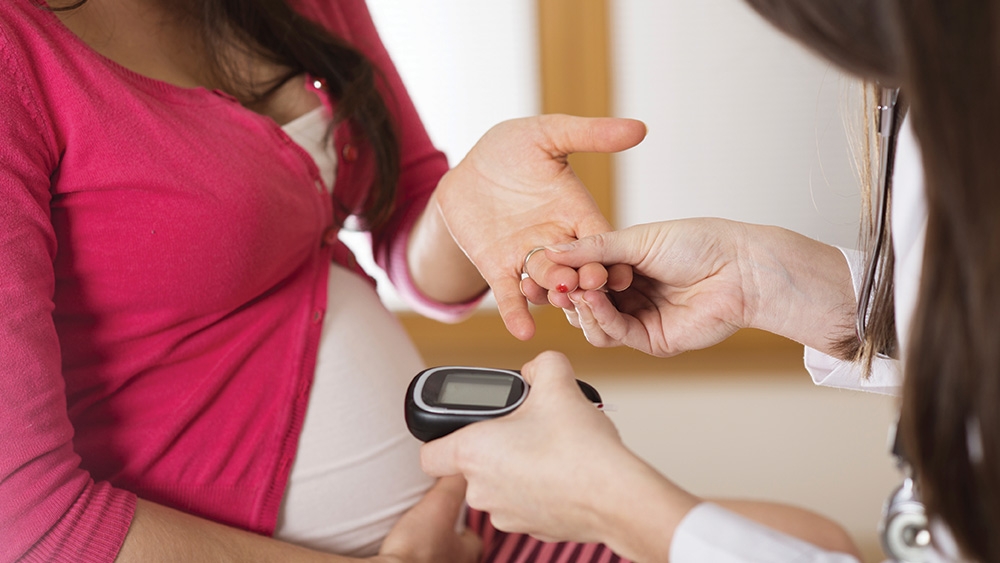Gestational diabetes is a form of diabetes that can develop during pregnancy in women who don’t already have diabetes. Every year, 2% to 10% of pregnancies in the United States are affected by gestational diabetes. Managing gestational diabetes will help make sure you have a healthy pregnancy and a healthy baby.
What Causes It?
The exact cause or causes of what causes gestational diabetes are not known. But there are risk factors that can increase the chances of getting it. As with any disease, risk factors are not a guarantee that you will contract the disease they just make the likelihood of getting it higher. Some of the risk factors you will have control over and some you do
not.
A family history of diabetes will increase the chances of developing gestational diabetes in pregnancy. The closer the relative is to you (first generation like a parent) means the risk is increased. If your family suffers from diabetes, your own pancreas may not be able to produce the amount of insulin necessary while pregnant. This deficit combined with the hormones released by the placenta can lead to diabetes in pregnancy.
Women who are overweight and are clinically considered obese run a higher risk of being diagnosed. The excess wait puts a strain on your body, including your pancreas, and makes it hard for enough insulin to be produced and used by your body effectively.
Impacts On You and Your Baby
Having gestational diabetes can increase your risk of high blood pressure during pregnancy. It can also increase your risk of having a large baby that needs to be delivered by cesarean section (C-section).
If you have gestational diabetes, your baby is at higher risk of:
- Being very large (9 pounds or more), which can make delivery more difficult
- Being born early, which can cause breathing and other problems
- Having low blood sugar
- Developing type 2 diabetes later in life
Your blood sugar levels will usually return to normal after your baby is born. However, about 50% of women with gestational diabetes go on to develop type 2 diabetes. You can lower your risk by reaching a healthy body weight after delivery. Visit your doctor to have your blood sugar tested 6 to 12 weeks after your baby is born and then every 1 to 3 years to make sure your levels are on target.
If you have had a previous baby with a higher than average birth weight, you are considered at risk for your next pregnancy of getting gestational diabetes. It could have been possible that you had it in your first pregnancy and it went undiagnosed. Babies born from moms with diabetes in pregnancy tend to be larger unless her blood sugars are strictly managed. Or if you had diabetes in your first pregnancy, chances are very high that you will get it again.
Treating It
You can do a lot to manage your gestational diabetes. Go to all your prenatal appointments and follow your treatment plan, including:
- Checking your blood sugar to make sure your levels stay in a healthy range.
- Eating healthy food in the right amounts at the right times. Follow a healthy eating plan created by your doctor or dietitian.
- Being active. Regular physical activity that’s moderately intense (such as brisk walking) lowers your blood sugar and makes you more sensitive to insulin so your body won’t need as much. Make sure to check with your doctor about what kind of physical activity you can do and if there are any kinds you should avoid.
- Monitoring your baby. Your doctor will check your baby’s growth and development.
If healthy eating and being active aren’t enough to manage your blood sugar, your doctor may prescribe insulin, metformin, or other medication.
Since there is still no known cause a woman may have all of these factors or none and still get diabetes. It is best to attend all of your prenatal appointments with your doctor so they can be on the look out for any signs that you may have gestational diabetes.







Be First to Comment